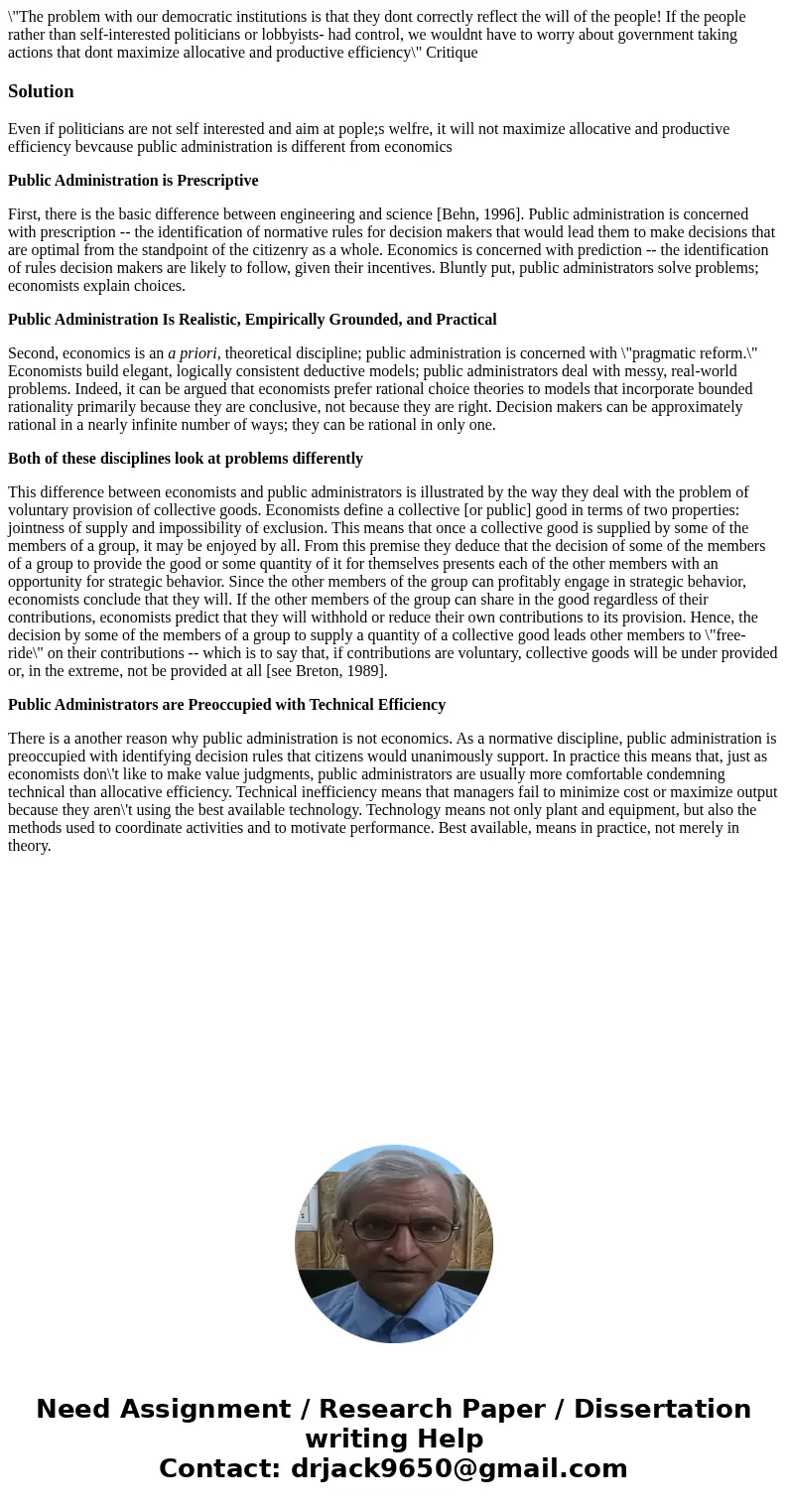The problem with our democratic institutions is that they do
\"The problem with our democratic institutions is that they dont correctly reflect the will of the people! If the people rather than self-interested politicians or lobbyists- had control, we wouldnt have to worry about government taking actions that dont maximize allocative and productive efficiency\" Critique
Solution
Even if politicians are not self interested and aim at pople;s welfre, it will not maximize allocative and productive efficiency bevcause public administration is different from economics
Public Administration is Prescriptive
First, there is the basic difference between engineering and science [Behn, 1996]. Public administration is concerned with prescription -- the identification of normative rules for decision makers that would lead them to make decisions that are optimal from the standpoint of the citizenry as a whole. Economics is concerned with prediction -- the identification of rules decision makers are likely to follow, given their incentives. Bluntly put, public administrators solve problems; economists explain choices.
Public Administration Is Realistic, Empirically Grounded, and Practical
Second, economics is an a priori, theoretical discipline; public administration is concerned with \"pragmatic reform.\" Economists build elegant, logically consistent deductive models; public administrators deal with messy, real-world problems. Indeed, it can be argued that economists prefer rational choice theories to models that incorporate bounded rationality primarily because they are conclusive, not because they are right. Decision makers can be approximately rational in a nearly infinite number of ways; they can be rational in only one.
Both of these disciplines look at problems differently
This difference between economists and public administrators is illustrated by the way they deal with the problem of voluntary provision of collective goods. Economists define a collective [or public] good in terms of two properties: jointness of supply and impossibility of exclusion. This means that once a collective good is supplied by some of the members of a group, it may be enjoyed by all. From this premise they deduce that the decision of some of the members of a group to provide the good or some quantity of it for themselves presents each of the other members with an opportunity for strategic behavior. Since the other members of the group can profitably engage in strategic behavior, economists conclude that they will. If the other members of the group can share in the good regardless of their contributions, economists predict that they will withhold or reduce their own contributions to its provision. Hence, the decision by some of the members of a group to supply a quantity of a collective good leads other members to \"free-ride\" on their contributions -- which is to say that, if contributions are voluntary, collective goods will be under provided or, in the extreme, not be provided at all [see Breton, 1989].
Public Administrators are Preoccupied with Technical Efficiency
There is a another reason why public administration is not economics. As a normative discipline, public administration is preoccupied with identifying decision rules that citizens would unanimously support. In practice this means that, just as economists don\'t like to make value judgments, public administrators are usually more comfortable condemning technical than allocative efficiency. Technical inefficiency means that managers fail to minimize cost or maximize output because they aren\'t using the best available technology. Technology means not only plant and equipment, but also the methods used to coordinate activities and to motivate performance. Best available, means in practice, not merely in theory.

 Homework Sourse
Homework Sourse